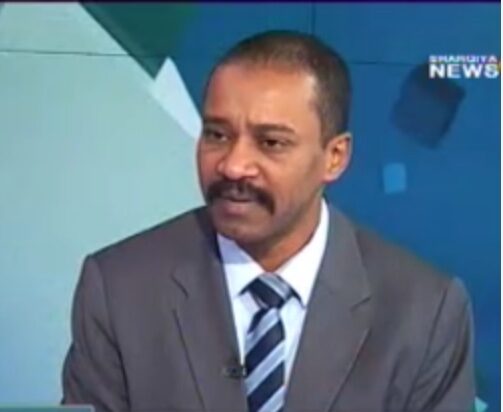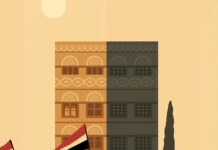Reading Dame Rosalind Marsden’s recent article on Sudan feels like paging through a history book stuck in the 1990s.
The analysis relies heavily on outdated talking points, fundamentally ignoring the significant political, social, and economic changes Sudan has undergone over the past decades. This perspective ultimately obscures any meaningful understanding of the current crisis.
Russia’s Naval Plans: Overstated Propaganda?
To begin with, the emphasis on the so-called threat posed by a potential Russian naval base in Sudan is overstated.
Russian officials themselves have made it clear that any such project would be contingent on the establishment of an elected Sudanese government. As it stands, this is a hypothetical concern rather than an imminent development.
Russia’s 2022 Maritime Doctrine did not directly refer to Sudan but did call for the development of relations with states that can provide access to the Mediterranean and Red Seas.
Elevating it to a central issue distracts from more pressing realities on the ground.
According to Richard Connolly, CIS Analyst at Oxford Analytica, “the Russian authorities have been notably cautious about the latest agreement with Sudan. Lavrov did not comment on the agreement during the press briefing with Al-Sharif and the Russian Foreign Ministry’s official readout of the talks similarly neglected to mention it. The issue did not attract significant coverage in the mainstream Russian press.”
Iranian Influence in Sudan
Next, the article raises alarms about “growing” Iranian influence in Sudan.
In reality, the scope of Sudanese-Iranian military cooperation is extremely limited—essentially confined to Iran supplying arms and ammunition to the Sudanese Armed Forces.
This relationship exists more out of necessity than alliance, largely because Sudan faces restrictions obtaining arms from elsewhere due to international sanctions. The notion of a significant Iranian footprint is simply unsupported by facts.
How to Provoke Fear in the ‘West:’ 9/11
The invocation of Osama bin Laden’s brief residence in Sudan during the 1990s is similarly misleading.
This historical footnote has little relevance to the current situation and seems included primarily to provoke anxiety among Western audiences, rather than to inform serious analysis.
Perhaps most problematic is the portrayal of atrocities committed during the conflict. The article suggests an equivalency between abuses by government forces and those perpetrated by the Rapid Support Forces. This is simply not accurate.
Evidence from international human rights and United Nations organisations clearly establishes that abuses by government forces are isolated and not part of official policy, while RSF atrocities are widespread, systematic, and unambiguously deliberate against the Masalit population.
Somoud and the RSF: Different or Aligned?
The writer also mischaracterises the stance of Sudan’s Civil Democratic Alliance for Revolutionary Forces (Somoud), led by former Prime Minister Abdalla Hamdok, claiming they oppose the war.
In reality, Somoud’s position is largely aligned with the RSF, though they frequently invoke rhetoric about democracy and human rights to appeal to Western sensibilities and hide their true colours. This is a veneer that does not reflect their actual conduct or alliances within Sudanese politics.
The article further argues that civilian voices are absent from international mediation efforts, but then privileges Somoud as the de facto civilian representative. This is misleading.
Somoud lacks significant popular support among Sudanese citizens, as evidenced by widespread criticism on Sudanese social media platforms, with the Ministry of Foreign Affairs rejecting the legitimacy of the group.
U.S. Priorities: Sudan Bottom of the List
The assertion that only U.S. engagement can resolve the conflict is also debatable.
In the current geopolitical climate, the United States is preoccupied with other crises, including Ukraine, Gaza, and the South China Sea. Sudan simply does not register as a top priority for U.S. policymakers, making the prospect of decisive American intervention unlikely.
Finally, the notion that a resurgence of hard-line Islamist leaders from the Bashir era poses a significant threat is exaggerated. Those figures were ousted in 2019, and the Sudanese public has unfalteringly demonstrated little appetite for their return.
However, it is important to note that Islamist figures tied to the Bashir regime are linked to the SAF regime in Khartoum as per recent media reports citing military and intelligence sources.
While the call for civilian involvement in peace negotiations is valid, it is indispensable that such participation be genuinely representative of Sudanese society. Elevating groups like Somoud, which indisputably lack broad legitimacy undermines the prospects for an inclusive and durable peace process.
This analysis would benefit greatly from a more current and nuanced understanding of Sudan’s realities. Reliance on outdated narratives does a disservice to those seeking to comprehend and resolve this painful conflict.
NOTE: This Article Does Not Represent the Views of The Daily Euro Times’ Editorial Board.
Dame Rosalind Marsden is the former EU Special Representative to Sudan and South Sudan (2010-2013) after serving as British Ambassador in Afghanistan (2010-2013), British Consul-General, Basra (2006-2007) and British Ambassador to Sudan (2007-2010); she now sits as a Associate Fellow at Chatham House.
Keep up with Daily Euro Times for more updates! Read also:
El Fasher in Crisis: Genocide Under the RSF
Sudan’s Emergence as a New Capatagon Hub
Re-Alignment in the Red Sea: Iran & Russia






